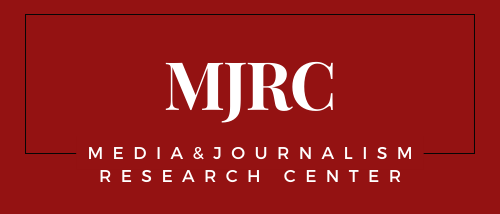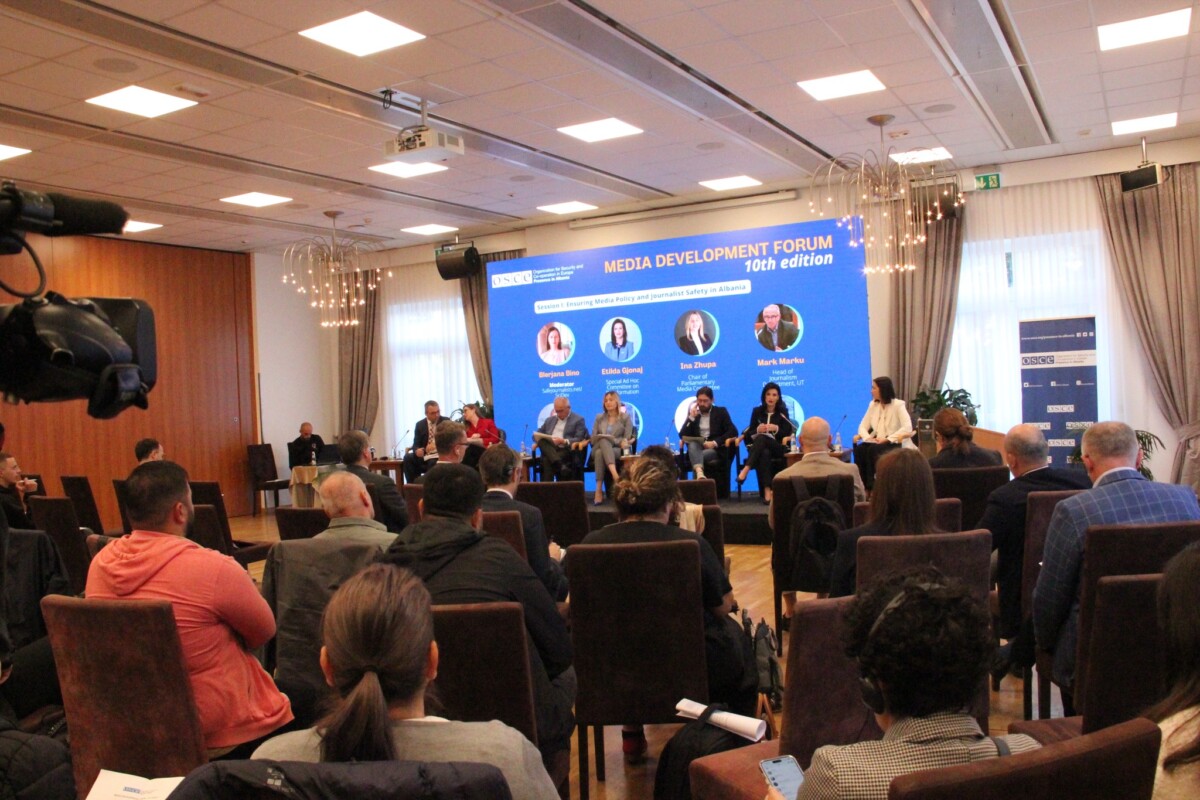At OSCE Forum, MJRC’s Director Outlines Shifting Landscape of European Journalism
Marius Dragomir, the director of the Media and Journalism Research Center, delivered a presentation on the prevailing trends in journalism across Europe at the 10th annual Media Development Forum, which was organized by the OSCE Presence in Albania.
In his presentation, Dragomir drew on the findings of ongoing research carried out by the MJRC, including the Media Influence Matrix and Global Media Finances Map, to highlight the emergence of four news ecologies in Europe.
The platformized/corporate model, which is characteristic of countries such as France, Spain, Germany, Austria, Ireland, and the United Kingdom, is defined by business-oriented, conglomerate-type ownership, wherein journalism is relatively independent. The second model is that of public interest media, which is specific to the Nordic countries. In these countries, one finds a healthy balance between a robust and well-protected public service media system and a dynamic and sustainable commercial market. This model presents the highest level of editorial independence on the continent.
Another media ecology is the captured model, which is prevalent in countries such as Hungary, Serbia, Turkey, and Bulgaria. In this system, state funding is dominant, and the media is controlled by a political and business elite that has transformed the media into propaganda channels. Finally, the atomized model, observed in countries in the Western Balkans and Romania, is a news ecology distinguished by a multitude of news outlets. However, these outlets are established and operated with the explicit purpose of attacking the enemies of their owners, whether businessmen, politicians, or institutions. In the final two news ecologies, media lack independence and are highly instrumentalized. Dragomir characterized Albania as a hybrid of the captured and atomized models. The country’s EU accession process presents a significant opportunity for media reform, despite the near-zero probability of such reform in the absence of this process. The 10th annual Media Development Forum in Albania, attended by representatives from local media, public institutions, academics, and civil society, provided a platform for discussing these issues.
Photo credit: OSCE Presence in Albania on Facebook
Invest in independent media research and join a community of practice.
Your contribution supports MJRC’s investigations and global analysis. As a supporter, you can receive early access to new findings, invitations to small-group briefings, inclusion in our Supporters Circle updates, and the option to be listed on our Supporters Page.
Contribute to MJRC
